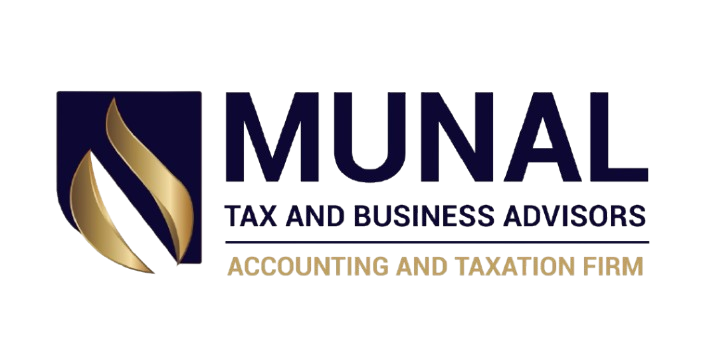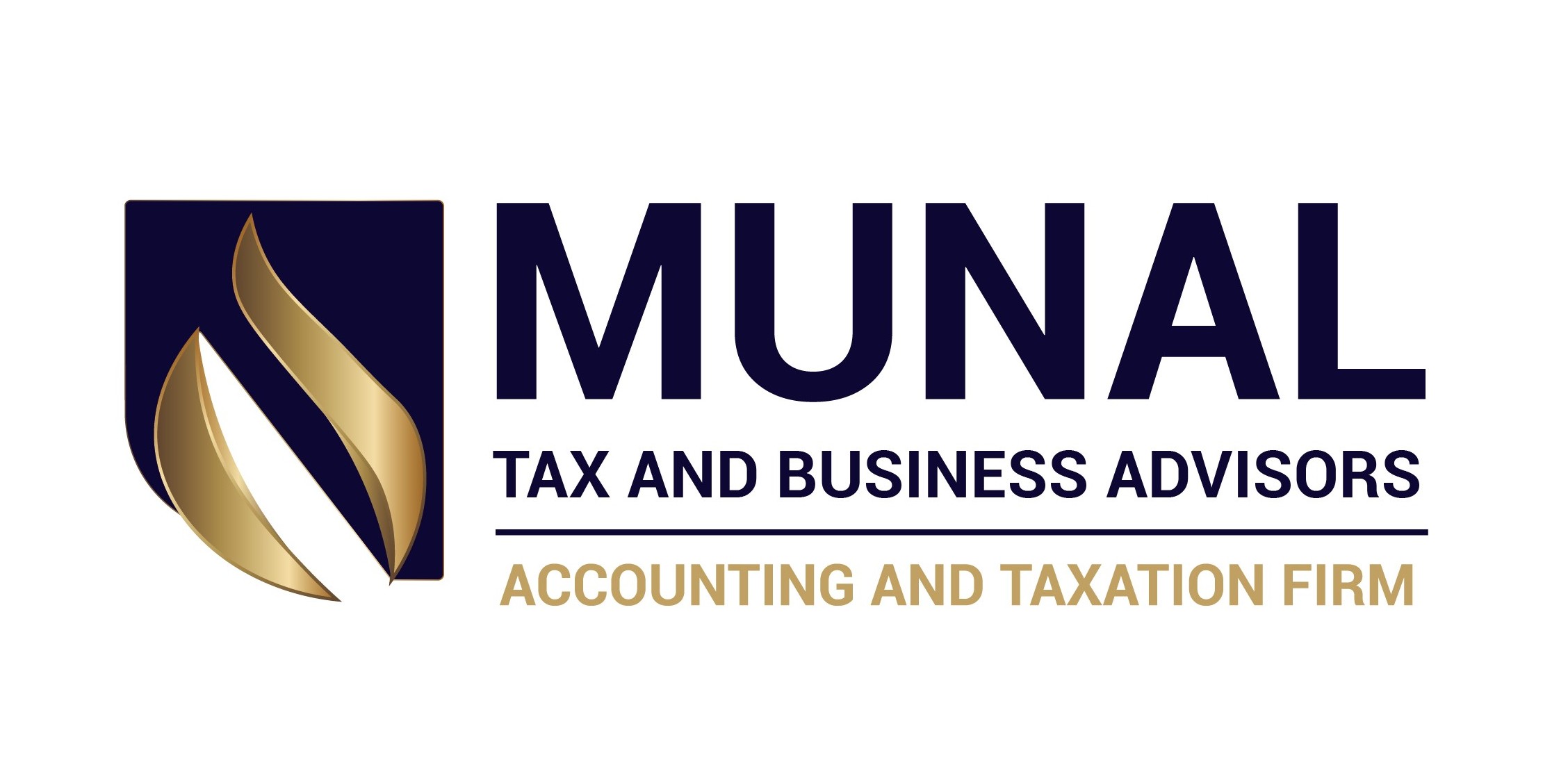We provide expert guidance to help you manage the accounting and tax duties involved in running your business, ensuring accuracy, compliance, and financial growth through personalized, timely, and strategic support tailored to your unique business needs.
Get Your First BAS 100% Free, Free Software for 1st Year, Small Business Bookkeeping from $3,300, Company Tax Return from $880
Get Your First BAS 100% Free, Free Software for 1st Year, Small Business Bookkeeping from $3,300, Company Tax Return from $880
Get Your First BAS 100% Free, Free Software for 1st Year, Small Business Bookkeeping from $3,300, Company Tax Return from $880
Get Your First BAS 100% Free, Free Software for 1st Year, Small Business Bookkeeping from $3,300, Company Tax Return from $880
Get Your First BAS 100% Free, Free Software for 1st Year, Small Business Bookkeeping from $3,300, Company Tax Return from $880
Get Your First BAS 100% Free, Free Software for 1st Year, Small Business Bookkeeping from $3,300, Company Tax Return from $880
Get Your First BAS 100% Free, Free Software for 1st Year, Small Business Bookkeeping from $3,300, Company Tax Return from $880
Get Your First BAS 100% Free, Free Software for 1st Year, Small Business Bookkeeping from $3,300, Company Tax Return from $880

Understanding a Company Structure
A company is a separate legal entity, meaning it has its own tax and superannuation responsibilities, and is managed by directors while being owned by shareholders.
- The company’s income and assets belong to the company itself, not the shareholders.
- Using company funds or assets for personal use may lead to tax consequences.
Comprehensive Support for Small Businesses
Business Setup
Accounting & Financial Reporting
Single Touch Payroll
KPI & Performance Tracking
Cashflow & Budget Planning

Your First BAS with Munal Tax Absolutely Free*
If you’ve trusted us with your personal tax returns, now’s the perfect time to let us support your business too. Let Munal Tax handle your first Business Activity Statement (BAS) for free — no strings attached.

Trusts
A trust is a legal arrangement where a person or entity, known as the trustee, is responsible for holding and managing assets on behalf of others, known as the beneficiaries.
When a trust is established to operate a business, it typically has a trust deed—a legal document that outlines the trustee’s responsibilities and the entitlements of the beneficiaries.
The trustee—which can be either an individual or a company—is in charge of managing the trust’s tax matters. In most cases, the net income of the trust is distributed to its beneficiaries.
Company
Distributing Profits
• Companies can share profits with shareholders by paying dividends.
• These dividends may include franking credits, which let shareholders receive a credit for the tax already paid by the company on its profits.
• These dividends may include franking credits, which let shareholders receive a credit for the tax already paid by the company on its profits.
Legal and Financial Responsibilities
• Although companies offer limited liability and some asset protection, directors can still be personally liable for their decisions.
• Under director penalty laws, directors may also be held responsible for certain tax or super debts of the company.
• Under director penalty laws, directors may also be held responsible for certain tax or super debts of the company.
Director Requirements
• All company directors must verify their identity and apply for a director ID before taking on the role.
• Companies are overseen by the Australian Securities and Investments Commission (ASIC).
• Companies are overseen by the Australian Securities and Investments Commission (ASIC).
Costs and Compliance
• Companies have higher setup and running costs than other business types.
• They also face more reporting and regulatory obligations.
• They also face more reporting and regulatory obligations.
Key Tax Responsibilities of a Company
A company has specific tax and superannuation obligations, including:
• It is independently responsible for managing and paying its own tax and super.
• It must obtain its own Tax File Number (TFN).
• It is entitled to an Australian Business Number (ABN) if registered under the Corporations Act 2001.
• If not registered under the Act, it can still apply for an ABN if it is operating a business in Australia.
• It is independently responsible for managing and paying its own tax and super.
• It must obtain its own Tax File Number (TFN).
• It is entitled to an Australian Business Number (ABN) if registered under the Corporations Act 2001.
• If not registered under the Act, it can still apply for an ABN if it is operating a business in Australia.
GST and BAS Requirements
A company must register for GST if:
• Its GST turnover is $75,000 or more annually ($150,000 for not-for-profits)
• It provides taxi, limousine, or ride-sourcing services (regardless of turnover)
• It wants to claim fuel tax credits
If the company is registered for GST, employs staff, or pays PAYG instalments, it may need to lodge Business Activity Statements (BAS) regularly.
• Its GST turnover is $75,000 or more annually ($150,000 for not-for-profits)
• It provides taxi, limousine, or ride-sourcing services (regardless of turnover)
• It wants to claim fuel tax credits
If the company is registered for GST, employs staff, or pays PAYG instalments, it may need to lodge Business Activity Statements (BAS) regularly.
Income, Tax Returns, and Payments
• The company owns all income it earns, not the shareholders.
Any funds withdrawn for personal use may have tax consequences for the individual.
• The company must lodge an annual company tax return.
• It generally pays income tax in advance through the Pay As You Go (PAYG) instalment system.
• Tax is paid at the company’s applicable corporate tax rate.
Any funds withdrawn for personal use may have tax consequences for the individual.
• The company must lodge an annual company tax return.
• It generally pays income tax in advance through the Pay As You Go (PAYG) instalment system.
• Tax is paid at the company’s applicable corporate tax rate.
Superannuation and Dividends
• The company is required to pay Super Guarantee contributions for all eligible employees, including directors.
• If the company distributes profits through dividends, it must provide distribution statements to shareholders.
• If the company distributes profits through dividends, it must provide distribution statements to shareholders.
Trusts
Key Tax Responsibilities of a Trust
A trust must:
• Have its own Tax File Number (TFN)
• Lodge an annual trust tax return, including details on how income was allocated
• Apply for an Australian Business Number (ABN) and use it for all business activities
It must also register for GST if it:
• Has a GST turnover of $75,000 or more annually ($150,000 for not-for-profits)
• Offers ride-sourcing, taxi, or limousine services, regardless of turnover
• Intends to claim fuel tax credits
If registered for GST, employs workers, or pays PAYG instalments, the trust may need to lodge Business Activity Statements (BAS).
Additionally, the trust must pay superannuation for eligible employees, which may include the trustee if they are employed by the trust.
• Have its own Tax File Number (TFN)
• Lodge an annual trust tax return, including details on how income was allocated
• Apply for an Australian Business Number (ABN) and use it for all business activities
It must also register for GST if it:
• Has a GST turnover of $75,000 or more annually ($150,000 for not-for-profits)
• Offers ride-sourcing, taxi, or limousine services, regardless of turnover
• Intends to claim fuel tax credits
If registered for GST, employs workers, or pays PAYG instalments, the trust may need to lodge Business Activity Statements (BAS).
Additionally, the trust must pay superannuation for eligible employees, which may include the trustee if they are employed by the trust.
Who Pays the Tax?
The trustee is responsible for lodging the trust’s annual tax return. However, who pays the tax depends on how the income is distributed:
• Beneficiaries generally pay tax on the share of income they receive from the trust.
• The trustee is responsible for paying tax on:
• Undistributed income
• Income allocated to certain beneficiaries, such as minors or non-residents
• In some situations, the trustee may be liable to pay tax even if the income is distributed.
If the trust incurs a loss, it cannot be passed on to beneficiaries or claimed against their personal income.
However, the trust may be able to carry forward the loss and use it to offset future income.
• Beneficiaries generally pay tax on the share of income they receive from the trust.
• The trustee is responsible for paying tax on:
• Undistributed income
• Income allocated to certain beneficiaries, such as minors or non-residents
• In some situations, the trustee may be liable to pay tax even if the income is distributed.
If the trust incurs a loss, it cannot be passed on to beneficiaries or claimed against their personal income.
However, the trust may be able to carry forward the loss and use it to offset future income.
How can we help Trust Structured business?
✅ 1. Trust Setup and Structure Advice
• Help you choose the most appropriate trust structure (e.g. discretionary/family trust, unit trust, hybrid trust).
• Draft or review your trust deed to ensure it aligns with your business goals and tax planning needs.
• Advise on whether a corporate trustee is beneficial for asset protection and administration.
✅ 2. Tax Compliance and Reporting
• Ensure the trust is properly registered for a TFN, ABN, and GST (if applicable).
• Prepare and lodge the annual trust tax return, including income distribution statements.
• Determine and manage the tax obligations of both the trustee and beneficiaries (including for minors or non-residents).
✅ 3. Income Distribution Strategy
• Advise on effective income distribution to minimise tax within legal limits.
• Help maintain proper documentation for resolutions on trust income allocations.
• Assist with timing strategies (e.g. pre-30 June decisions) to manage tax liabilities.
✅ 4. Business Activity and BAS Lodgements
• Register for and manage GST, PAYG, and fuel tax credits if applicable.
• Prepare and lodge Business Activity Statements (BAS) and Instalment Activity Statements (IAS).
• Monitor your GST turnover threshold to ensure timely compliance.
✅ 5. Superannuation and Employment Obligations
• Advise on and process super guarantee contributions for eligible employees and possibly the trustee.
• Help meet employer obligations like PAYG withholding, payroll tax, and STP (Single Touch Payroll) reporting.
✅ 6. Financial Management and Bookkeeping
• Provide bookkeeping services tailored to trust structures.
• Set up accounting systems that reflect trust income and distributions accurately.
• Monitor and report trust performance, cash flow, and expenses.
✅ 7. Trust Losses and Carry-Forward Rules
• Track and manage carry-forward losses, ensuring compliance with ATO’s strict trust loss rules.
• Advise on what losses can be applied to future income and ensure records are maintained for audit purposes.
✅ 8. Tax Planning and Asset Protection
• Implement year-round tax planning to legally reduce tax and avoid unexpected liabilities.
• Advise on asset protection strategies, ensuring business and personal assets are safeguarded through the trust structure.
✅ 9. Ongoing Strategic Advice
• Offer tailored business advisory services, including growth strategies, restructuring, and succession planning.
• Support changes in the trust (e.g. adding/removing beneficiaries or trustees) and handle necessary ATO/ASIC updates.
If you’re operating a business through a trust, having Munal Tax and Business Advisors on your side ensures that you’re fully compliant, tax-efficient, and set up for long-term success.




